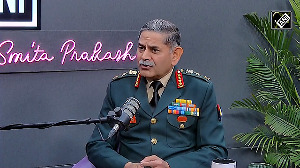 One of the most favoured duty reimbursement schemes among exporters - the Duty Entitlement Passbook (DEPB) scheme - is likely to be scrapped, as the government gears up to introduce the Goods and Services Tax (GST) from April 1.
One of the most favoured duty reimbursement schemes among exporters - the Duty Entitlement Passbook (DEPB) scheme - is likely to be scrapped, as the government gears up to introduce the Goods and Services Tax (GST) from April 1.
The scheme, which was extended till December 31 in the Foreign Trade Policy 2009-2014, is widely viewed as one of the best incentive schemes by exporters.
However, with the rollout of GST, which aims to eradicate the cascading effects of the current taxation system, the scheme may finally be wiped out from the books.
Exporters end up paying a slew of state-level and other forms of taxes such as electricity tax, octroi, un-rebated tax, un-rebated sales taxes, central sales taxes, none of which is rebated at present due to the federal tax structure. "The incentive schemes have been introduced to lessen the incidence of tax, as taxes cannot be exported," explained an official.
But, with GST designed to stop the cascading effect of taxes, the basis for having the scheme would no more be there.
"Therefore, DEPB might not be extended beyond December 2010, if GST comes in as part of the Budget," a senior commerce and industry ministry official told Business Standard. Another official, however, added that even if the government decided to postpone the introduction of GST, DEPB would be allowed to lapse.
With the scheme lapsing, and even after introduction of GST, exporters will, however, continue to pay customs duty on their import inputs, since GST would not subsume customs duty. According to a finance ministry official, apart from the countervailing duty, no other customs duty will be included in GST.
According to the figures released by Budget document in July 2009, the government had to forgo an estimated revenue of Rs 7,092 crore (Rs 70.92 billion) in 2008-09 and Rs 5,341 crore (Rs 53.41 billion) in 2007-08 on account of DEPB.
Sources in the commerce ministry indicated, besides the need to shore up some revenue by phasing out such schemes, the government was under pressure from the developed countries at the level of World Trade Organization (WTO) to finally stop giving the incentive.
The incentives given under the scheme are treated as direct subsidies and, hence, it is not compatible with WTO rules. It was supposed to expire in March 2009 but in the absence of an alternative scheme, it was extended twice till December 2009 and then till December 2010.
The country's export sector, which had been adversely affected due to the global economic slowdown, resulting in huge job losses across all sectors, has been given a number of incentives to revive. It was recently given an additional incentive, worth Rs 500 crore (Rs 5 billion), to explore newer markets to sell a wide range of products.
Recently, Commerce and Industry Minister Anand Sharma said exports for December had risen year on year to $14.6 billion (Rs 66,500 crore) in December. In November, exports registered an annual growth rate of 18.2 per cent to $13.2 billion, first increase after 13 months of annual decline.
Official trade data for December will be released on February 1.












 © 2025
© 2025